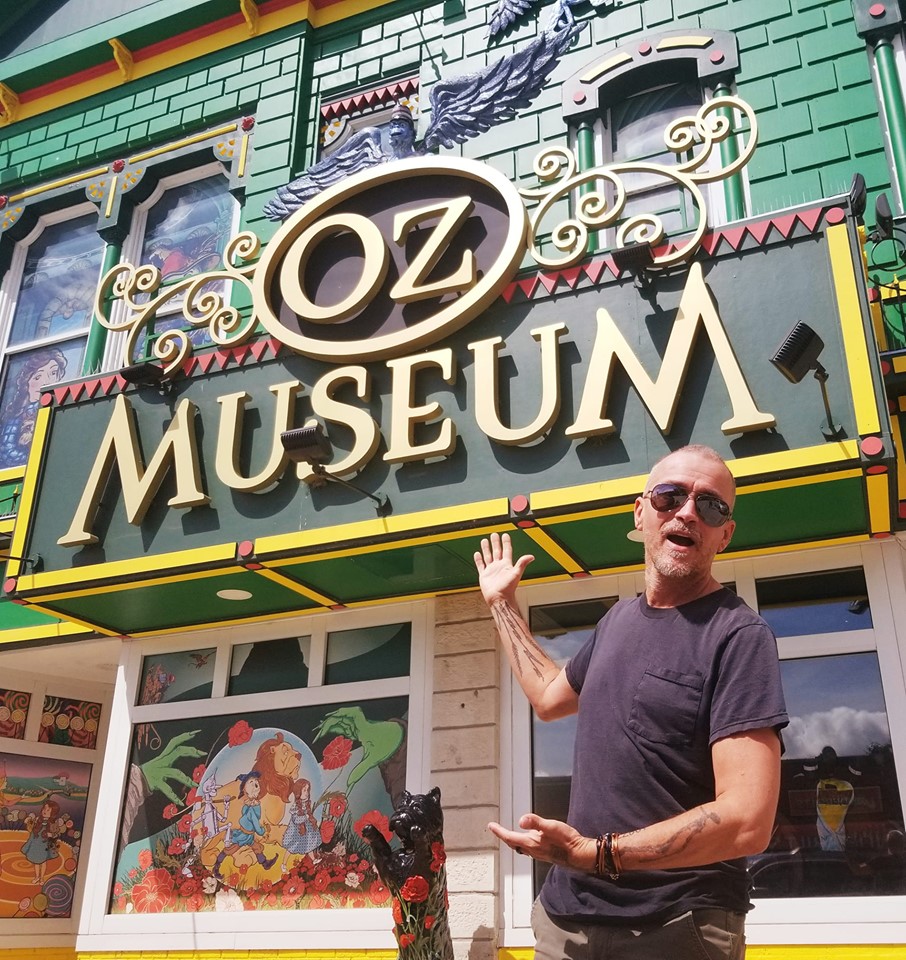Power through Pride: Milton Wendland strives to be vocal for the LGBTQ community

This story is part of a continuing series that features leaders at USF during Pride Month.
Growing up in a farm town in Kansas with a population of fewer than 1,000 people, professor of instruction Milton Wendland was confined to the traditional values of his hometown in his early childhood.
Wendland knew since he was four that he was different. While he didn’t understand the proper terminology at the time, he did understand that he preferred playing house with the girls rather than roughhousing with the boys.
His connection to the outside world lay in his teachers who went to college. Neither of his parents went to college, and many people stayed in the town after graduating high school to work on their family farm.
At 15 years old, Wendland traveled with his forensics teacher to New Orleans for his debate and forensics school competition. It was one of the first times he left his small town.
The two entered a local store and encountered a man, who Wendland suspected was gay, that had been beaten up and was bleeding from his head. While he didn’t completely understand why at the time, he felt that he was linked to this man in a personal way.
“I had no clue what was going on,” Wendland said. “At that time, I had no clue about homophobia, but something in my mind, at that time, I thought there’s something here that is connected to me and I don’t know what it is. It was a very scary, scary moment for me, because I saw myself in that man.”
Earning the title of “smart kid,” Wendland felt he didn’t have to live up to the same typical standards as most boys. He also faced a series of health issues in grade school, so he was often not in school or was unable to play with the boys at recess.
After completing a degree in sociology at the University of Kansas (KU), he decided to go to law school as his parents always thought he would be a good lawyer, according to Wendland.
Studying women’s and gender studies in the early 2000s and graduating with his graduate certificate from KU in 2006, Wendland didn’t encounter many classes regarding the LGBTQ community and sexuality studies. He wanted to become a professor and explore teaching about the LGBTQ community more, so started developing some classes of his own.
The women’s and gender studies department at KU ran the classes for a few semesters before making them permanent classes, according to Wendland. The classes, which are still taught at KU, caught the attention of the women’s and gender studies department at USF, who hired Wendland to help develop them there.
Not coming out until he was 21 years old, Wendland feels fortunate he was never bullied for being gay, which motivated him to help students and people in the LGBTQ community who weren’t as lucky.
“Some of the hardest challenges are, when you’re a professor, you design a class, even if it’s something you love, it doesn’t mean you can just teach the parts that you love. You have to teach things that you may not know as much about,” Wendland said.
Despite teaching over 300 students at a time, Wendland takes time to balance professionalism and fun, according to former colleague Helis Sikk.
“He is the most organized person I know, always on top of everything,” Sikk said. “He is a great person to go for any kind of teaching advice. At the same time, he has a life.”
While he takes time to do things he enjoys, he also values his students and work at the university, whether it is class related or supporting members of the LGBTQ community at the university.
Alisha Romano, his teacher’s assistant for the past four semesters for his Introduction to Women’s Studies course, understood how much he cares about his students and those around him.
“He is a kind man, who thinks of others and tries his best to give those around him the support they need to be the best that they can be,” Romano said. “He always goes above and beyond in his role as an instructor and mentor to ensure that he can be a strong resource for his students and T.A.s.”
He is also always working to expand his knowledge on subjects and actively revises his courses to best serve his students and teaching assistants, according to Romano.
As well as teaching classes, Wendland also speaks to different groups around campus, including fraternities, sororities and athletic departments to make sure students have a basic understanding of the LGBTQ community, according to Wendland.
Online Student Activities and Services Coordinate at St. Petersburg College Medina Karagic learned about Wendland through her roommate freshman year. She said he uses education as a form of empowerment.
“My roommate talked about how he helped her discover her identity within the spectrum of being an LGBTQ individual, and how she never thought that she would find such safety in education,” Karagic said.
Last semester, Karagic took a class with Wendland and experienced his impact first hand. During the semester, she missed an assignment and reached out to Wendland about it. He responded by asking what was going on in her life, rather than diminishing her for not completing the assignment, according to Karagic.
“He puts humanity before bitter business and allows students room for error as he knows it is just a stepping stone for our growth,” Karagic said.
Wendland hopes to make students in his classes and around the university feel accepted for who they are and allow for a more widespread understanding of the LGBTQ community.
“Everyone should have a basic clear shot at a good life. If I can use my privilege and my power, my experience to do that, I want to do that and if I do it through teaching that’s great.”






